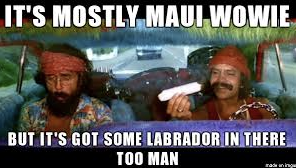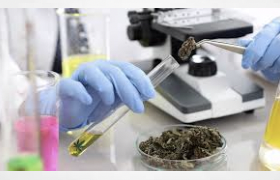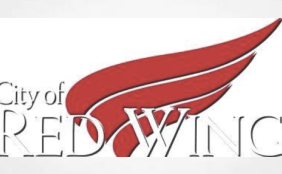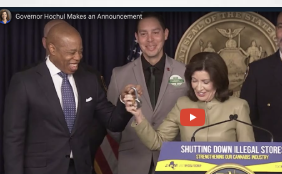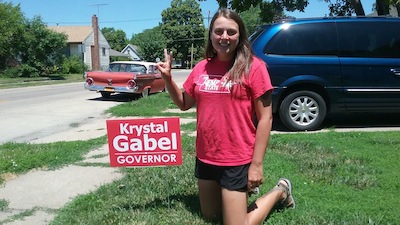Krystal wrote the following about her hopes for the hemp sector on her blog
If all candidates had this level of knowledge we might not be in the mess we are currently in.
I propose introducing industrial hemp as an agricultural commodity in the Nebraska economy. If Nebraska embraced industrial hemp legalization, the entire state would immediately begin to reap the benefits.
Expanding our economy is how we lower the common Nebraskan’s taxes, address the recently accrued $1B state deficit, and move our state into a sustainable industry that future generations will continue to benefit from as well.
The budget-tax package proposed last week by Gov. Pete Ricketts merely re-shuffles existing resources. Specifically, Ricketts wants to reduce state spending, borrow more from the cash reserve fund, rely more on tax credits for common Nebraskans, and reduce top individual and corporate income taxes.
Farmers, business owners, families, and individuals across Nebraska agree that these moves are not enough to expand our economy and create jobs, save our agriculture, provide real tax solutions for common Nebraskans, or continue to fund the public education in which we promise to our youth.
Between 25-33% of Nebraska farmers want to rotate industrial hemp into their fields as soon as it is legally possible, with at least 90% of farmers supporting industrial hemp farming in our state[1]. It is clearly well known across Nebraska that biotechnology corn and soybeans crops are failing to provide the revenues needed to save our agriculture.
A crop’s value is dependent on yields and market prices. As of 12 Jan 2018, farmers across Nebraska were offered an average of $3.09/bu and $8.65/bu, respectively, for their corn and soybeans. These cash price returns are low enough that, in many cases, they will not cover a farmer’s budget to plant, grow, and harvest next year’s crop.
|
|
Corn |
Soybeans |
|
# of acres harvested in NE, 2017[2] |
9.5 million |
5.6 million |
|
Spot cash per bushel price, 12 Jan 2018[3] |
$3.09/bu |
$8.65/bu |
|
Average bushels per acre harvested in NE, 2016[4] |
173.55 bu/ac |
61.3 bu/ac |
|
Average return per acre[5] |
$536.24/ac |
$530.25/ac |
|
Expected average 2018 crop budget per acre[6] |
$630.94/ac |
$444.14/ac |
What Nebraska’s economy needs is a new crop commodity. Hemp, a native plant that grows naturally in most of Nebraska’s State Parks and road ditches, is a green, sustainable crop market that will generate billions in revenue for our state.
Forbes says that CBD oil derived from hemp will be a $1B market on its own by 2020[7]. CBD is one of the non-psychoactive cannabinoids found in the cannabis plant. The demand for CBD is so high because of its anti-inflammatory qualities that can achieve relief for individuals with a range of ailments, from tumor reduction to anxiety relief. The demand for locally grown hemp will only rise as more Nebraskans chose natural, plant-based medicine over opiates and other synthetic pharmaceuticals.
Despite some recognition from lawmakers that Nebraska needs to act to save agriculture[8], a hemp bill written and lobbied for in this spring 2018’s short legislative session did not receive priority. Industrial hemp is again shelved in Nebraska Legislature until at least this coming fall.
Nebraska is stuck between corn and soybeans – two crops that year after year continue to destroy our soil and abuse our water resources, fail to generate enough revenue to support our farmers through the next year, and lack the versatility to expand Nebraska’s economy.
Industrial hemp is appealing to Nebraska farmers for a number of reasons.
Hundreds of seed strains exist, including a Nebraska heritage hemp seed, that can be individually selected for each soil type that exists across the state. Farmers will be able to harvest their own seeds for next year’s crop. No more buying seed.
Hemp also grows extremely fast in the field – upwards of 2.5 inches a day according to North Dakota State University[9] – and produces various yield types. A super plant, hemp produces more fiber yield per acre than any other crop, including trees and cotton. The canopy created by its own branches retains its moisture, resists drought, and requires a fraction of water compared to corn and soybeans.
Once a hemp crop is fully grown, farmers use custom combine headers and attachments to separately harvest seed and stalk, among other equipment to process the crop for various refinery sales. Implementation upgrades for harvesting hemp is another fast-growing market appealing to Nebraska engineers like Andrew Bish, founder of Hemp Harvest Works, a hemp harvesting engineering facility in Giltner, NE.
Little do many know, our state is already building a behind-the-scenes hemp industry of sorts with Bish, and others like him, offering inventive growing, implementation, and harvesting services to out-of-state hemp and cannabis farmers. Local farmers are missing out on tremendous opportunity.
Industrial hemp isn’t just work for farmers. Harvested hemp produces various yields – seed, bark, stalk, leaves. Each part of the plant has value and can be manufactured into a marketable good. The hemp market will re-introduce mills and refineries across Nebraska that manufacture the products we need most – natural medicine, diesel and ethanol, high-protein food, biodegradable plastics, and construction materials.
For example, after harvest, the hemp stalk is dried and then milled into fiber for construction materials, an alternative to trees and chemically based products. Hemp oil can be hydraulically pressed from the stalk and then refined into ethanol and diesel, an alternative to petroleum. One acre of hemp stalk can produce as much paper as ten acres of trees, with an entire crop taking just four months to grow (instead of 20-80 years)[10]. Or the millions of years it takes for our earth to create petroleum.
With the ever-increasing demand for a sustainable alternative to fossil fuels, bioethanol and biodiesel are where the billions in revenue is available for Nebraska. Sourcing a sustainable crop like hemp to produce the cellulose needed for biofuel fermentation will save our world, not just our state.
Upwards of a ton of oil could be hydraulically pressed from every harvested acre of hemp, transported to a local refinery, manufactured more efficiently into ethanol and diesel, and then sold to residents and the 20 million tourists Nebraska hosts every year. Every cent invested in a gallon of biofuel would stay in Nebraska. No more importing oil and costing future generations more than we can possibly imagine.
Nebraska has the ability to build a bustling economy with tens of thousands of new jobs across the state – from new and seasoned farmers who are eager to save our agriculture to individuals in processing mills, product refineries, and retail sales. Residual markets like security, construction, accounting, and technology will experience more revenue as well from a renewed economy.
Industrial hemp is also an opportunity to invite families back to Nebraska, a move that will subsequently benefit our property, income, and sales tax revenues. By introducing a sustainable, green economy, I promise I will work to cut costs for common Nebraskans, from property taxes to energy bills. No more property bonds to pay for education. No more tax cuts for megacorporations and the ultrarich. No more program cuts to child welfare, special education, disability services, or community safety.
Many Nebraskans dream of better jobs and health, a greener agricultural future, and a more positive place for their families and businesses to grow. Nebraska has millions of acres to farm, industrial space for mills and refineries, an eager workforce, and a slacking economy.
Our imagination with what we can create with hemp is our only limit. As your next Governor, I will work to make Nebraska the Hemp Capitol of the World.
———————————————————–
Krystal Gabel is a candidate on the May 15, 2018, Republican Primary ballot for Governor. You must be registered Republican to see and vote for her in the Primary Election. You can now register and update your Nebraska voter registration information online: https://www.nebraska.gov/apps-sos-voter-registration/
The Gabel for Governor Campaign office is located at 635 South 50th Ave, Omaha NE 68106. Office hours are Monday-Thursday, 5-9 p.m. www.gabelforgovernor.com
Contact information: krystalgabel@yahoo.com or krystal@gabelforgovernor.com; 402-871-1891
[1] Andrew Bish, Founder, Hemp Harvest Works. Personal conversation on 2 January 2018.
[2] NASS, Agricultural Statistics Board, and USDA Acreage report. 30 June 2017. ISSN:1949-1522.
[3] Does not include organic crop cash prices. USDA. https://www.ams.usda.gov/mnreports/wh_gr111.txt.
[4] https://cropwatch.unl.edu/corn/yieldtrends and https://cropwatch.unl.edu/soybeans/yields
[5] (Average bushel per acre harvested in NE, 2016) x (spot cash bushel price, 12 Jan 2018)
[6] Averages derived from corn budgets 15-38 and soybeans budgets 55-62. A 2018 Nebraska Extension publication available on UNL CropWatch. https://www.cropwatch.unl.edu/budgets.
[7] Borchardt, Debra. Hemp Cannabis Product Sales projects to hit $1 Billion in 3 years. www.forbes.com.
[8] Duggan, Joe. Legislative reaction to Rickett’s proposed tax plan: Support mixed with skepticism. www.omaha.com
[9] Industrial Hemp Variety Performance in North Dakota 2017. NDSU Langdon Research Extension Center. www.ag.ndsu.edu/crop-production-management
[10] 14 October 1916. USDA Bulletin #404: Hemp Hurds as Paper-Making Material. https://scholar.google.com


